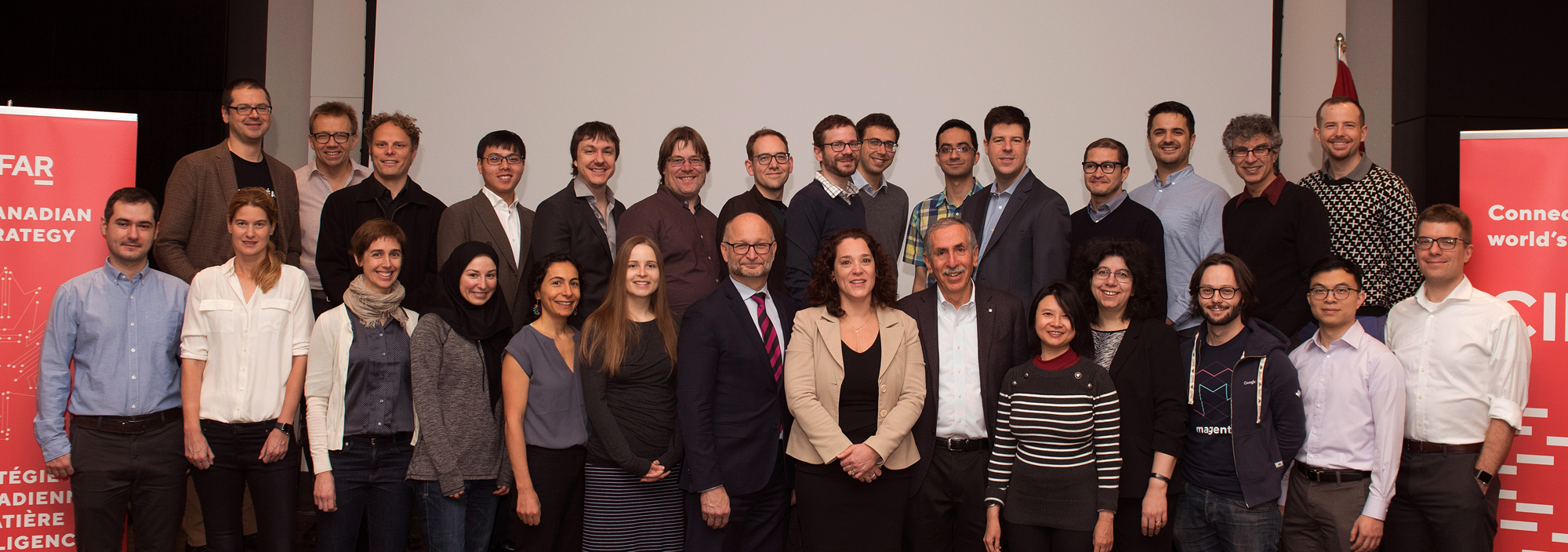By: CIFAR
3 Dec, 2018


$30 Million in funding announced today intended to keep Canada at forefront of cutting edge AI research
CIFAR today announced the inaugural cohort of Canada CIFAR AI (CCAI) Chairs at AICan, the first annual meeting of the Pan-Canadian AI Strategy. These top academic researchers are named as part of the $125 million Pan-Canadian AI Strategy, and will help maintain Canada’s leadership in artificial intelligence research.
An important pillar of the Pan-Canadian AI Strategy, the Canada CIFAR AI Chairs program is designed to attract and retain more than 50 leading AI researchers. The Chairs are nominated by and will be affiliated with one of our three national AI Institutes: Amii (Edmonton), Mila (Montreal) and the Vector Institute (Toronto).
The first cohort of 29 chairs named below includes established experts as well as promising early-career researchers. The CCAI Chairs will form the research backbone of a robust and sustainable AI ecosystem that will help maintain Canada’s leadership role in the development and application of machine learning.
In 2017 CIFAR was chosen by the federal government to lead the $125 million Pan-Canadian Artificial Intelligence Strategy in collaboration with artificial intelligence research centres in Edmonton, Montreal and Toronto. Support for the CCAI Chairs is one part of a larger strategy that includes training opportunities, research funding, and workshops on the societal implications of AI designed to build on Canadian leadership in artificial intelligence.
The CCAI Chairs were reviewed by an International Scientific Advisory Committee made up of scientific leaders from major institutions and companies around the world, including Google, DeepMind, Microsoft, Facebook, Stanford, Princeton, and the French National Center for Scientific Research.
About half of the chairs are taking up their first faculty positions in Canada, and received training all over the world, including in the US, China, Iran and France. They work on a wide variety of applied and theoretical topics, including natural language processing, image recognition, reinforcement learning, cryptography, convolutional networks and medical diagnosis.